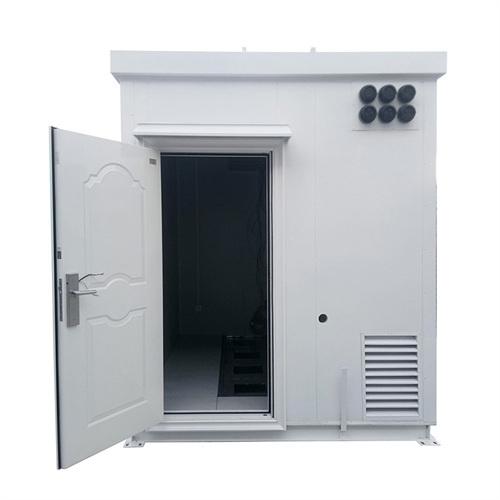Photovoltaic panel chip size specification diagram

Solar Panel Wiring Diagram for All Setups [+ PDFs] –
What Is a Solar Panel Wiring Diagram? A solar panel wiring diagram (also known as a solar panel schematic) is a technical sketch detailing what equipment you need for a solar system as well as how everything should

Solar Photovoltaic: SPECIFICATION, CHECKLIST AND GUIDE
PV Cell Formats and Size Guide. Here''s a handy diagram I created to help show the difference between all the new solar PV cell formats in the market right now. Monocrystalline cells are made by slicing across a

Solar Cell Production: from silicon wafer to cell
In our earlier article about the production cycle of solar panels we provided a general outline of the standard procedure for making solar PV modules from the second most abundant mineral on earth – quartz.. In

Guide to Solar Panel Sizes & Dimensions (November
Solar panel size refers to the total amount of power a solar panel can generate over a period of time; Solar panel dimensions refers to the physical size of a solar panel; Solar panel sizes and wattage range from 250W

Blocking Diode and Bypass Diodes in a Solar Panel
Bypass Diode and Blocking Diode Working used for Solar Panel Protection in Shaded Condition. In different types of solar panels designs, both the bypass and blocking diodes are included by the manufactures for

Step-by-Step Guide to Understanding Solar Panel
It ensures that any excess current is redirected safely to the ground. When wiring your solar panel system, make sure to follow the National Electrical Code (NEC) regulations and consult a qualified electrician to ensure proper grounding.

Architectural Drawings for Solar Photovoltaic Systems
To meet the requirements of the DOE Zero Energy Ready Home program, provide an architectural drawing and riser diagram of RERH solar PV system components and solar hot water. Develop architectural drawings

Guide to Installing Solar Panels: Wiring Diagrams
In this article, we will discuss the basic wiring diagram for solar panel installation, including the components and steps involved. panel system. They are made up of photovoltaic cells that convert sunlight into direct current (DC) electricity.

Series, Parallel & Series-Parallel Connection of PV Panels
Solar Module Cell: The solar cell is a two-terminal device. One is positive (anode) and the other is negative (cathode). A solar cell arrangement is known as solar module or solar panel where

Solar Panel Installation Guide – Step by Step Process
Solar Panels perform at optimum capacity when placed in direct sunlight. When you install your Solar Power system, try to position your photovoltaic panels directly under the noontime sun for maximum efficiency

How Do Solar Panels Work? Diagram & Step by Step
In this guide, we will concisely explain how solar panels work with helpful diagrams and a step by step explanation. How solar panels work. Solar Energy Diagram. This solar panel diagram shows how solar energy is

6 FAQs about [Photovoltaic panel chip size specification diagram]
What are the Design & sizing principles of solar PV system?
DESIGN & SIZING PRINCIPLES Appropriate system design and component sizing is fundamental requirement for reliable operation, better performance, safety and longevity of solar PV system. The sizing principles for grid connected and stand-alone PV systems are based on different design and functional requirements.
How to design a solar PV system?
When designing a PV system, location is the starting point. The amount of solar access received by the photovoltaic modules is crucial to the financial feasibility of any PV system. Latitude is a primary factor. 2.1.2. Solar Irradiance
How many PV modules in a 12 volt Solar System?
Therefore, a 12 V system needs 13 PV modules connected in parallel. In this section, we will discuss the energy balance of single PV module with following assumptions: One-dimensional heat conduction. The system is in quasi-steady state. The ohmic losses between solar cells in PV module are negligible.
What are the sizing principles for grid connected and stand-alone PV systems?
The sizing principles for grid connected and stand-alone PV systems are based on different design and functional requirements. Provide supplemental power to facility loads. Failure of PV system does not result in loss of loads. Designed to meet a specific electrical load requirement. Failure of PV system results in loss of load.
How many PV panels are connected in series?
Solution: By using Example 4.2, the total voltage of one panel consists of four PV modules connected in series = 18 + 18 + 18 + 18 = 72 V. Now, the total voltage of one array consists of three PV panels connected in series = 72 + 72 + 72 = 216 V.
What is the importance of sizing a solar PV system?
Appropriate system design and component sizing is fundamental requirement for reliable operation, better performance, safety and longevity of solar PV system. The sizing principles for grid connected and stand-alone PV systems are based on different design and functional requirements. Provide supplemental power to facility loads.
Related Contents
- Photovoltaic panel specification drawing size diagram
- 1 photovoltaic panel size specification diagram
- Rooftop photovoltaic panel size specification drawing
- Photovoltaic panel large block size diagram
- Photovoltaic panel aluminum frame size specification table
- Photovoltaic panel waterproof size specification table
- Residential photovoltaic panel size specification table
- Photovoltaic panel trench installation diagram
- The size of a photovoltaic panel is several meters by several meters
- Specification requirements for photovoltaic panel installation fasteners
- Photovoltaic panel water tank price and size table
- JA Solar 600W photovoltaic panel size